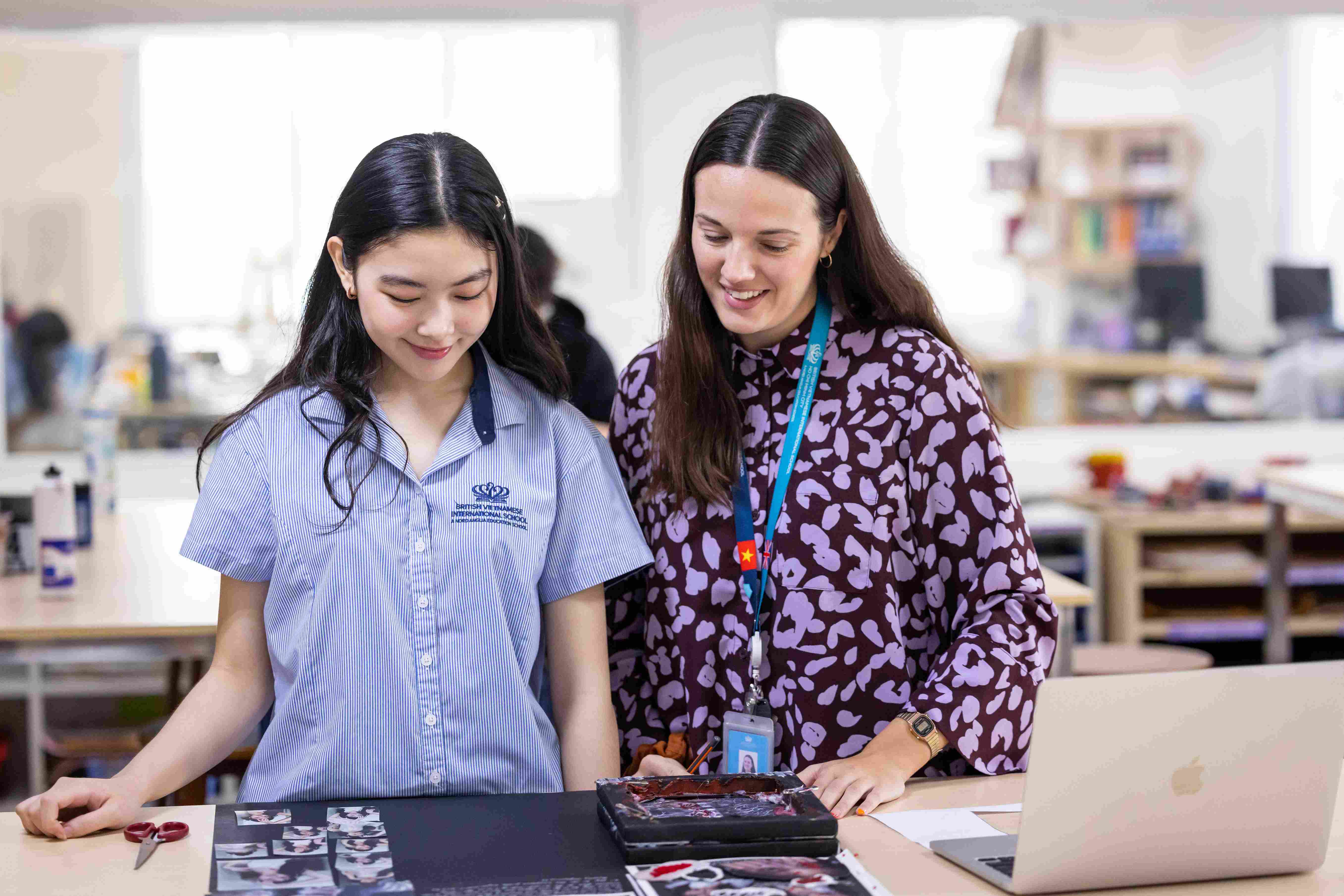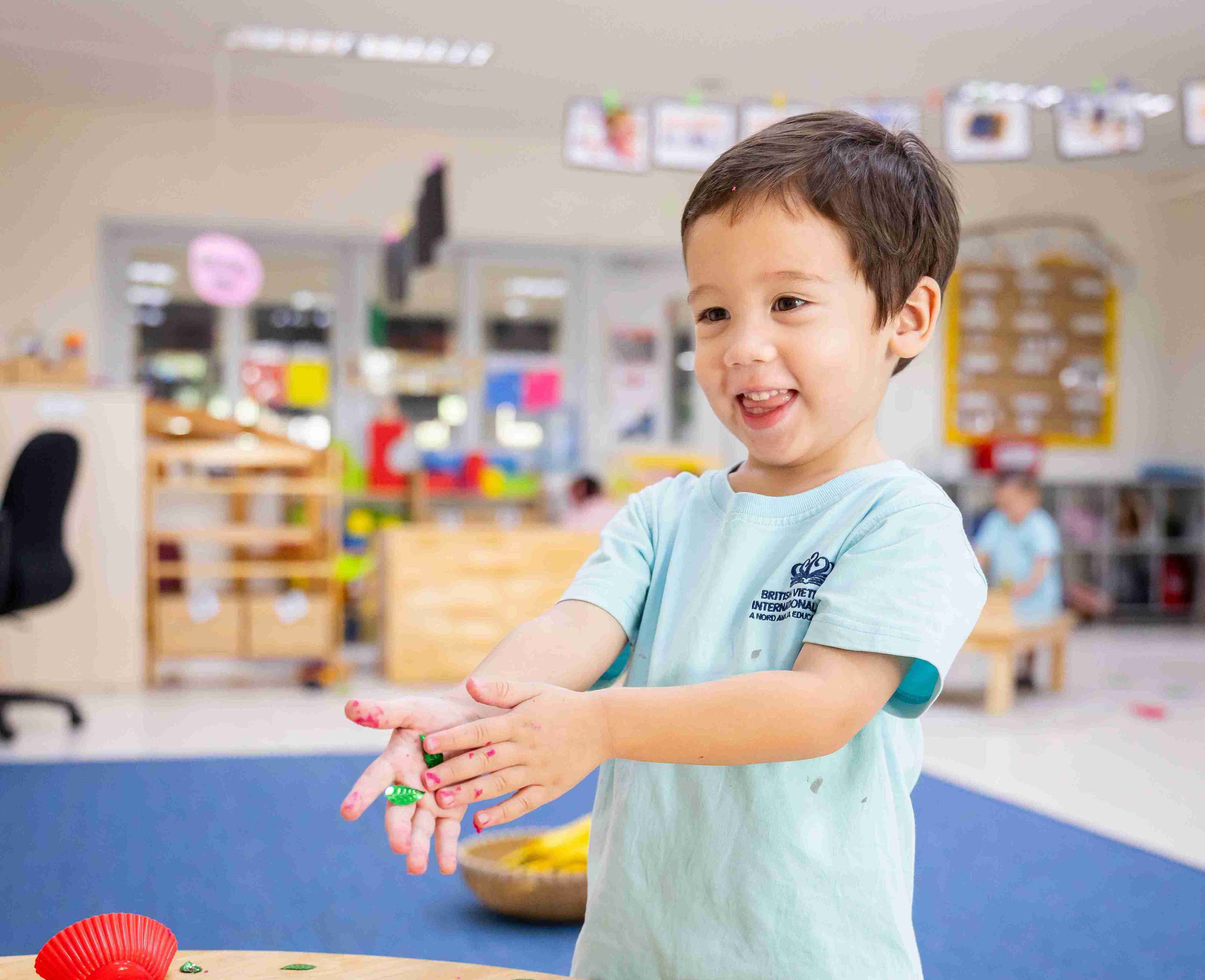The benefits of playtime for Early Years children Play is powerful and fundamental to children during their early years. This blog is written by Lindsey Graves, Early Years Learning Leader and EY1 Teacher at British International School Houston.
Play is powerful and fundamental to children during their early years and we know parents work hard to strike an appropriate balance within the home as we do in school, where play is an essential component of learning. There is much evidence to confirm that the practical and experiential nature of play particularly supports crucial development in a child’s learning journey.
Social Skills
Play provides an opportunity for children to develop language skills and experiment with new words. When interacting with parents and siblings, listening and attention skills are enhanced as they take turns in conversation and negotiate ideas to further their play experience. These are also opportunities for children to develop their problem-solving skills as they will naturally adapt their ideas as they encounter a challenge or hurdle to overcome. A true sense of morality and teamwork will become increasingly present the more your child engages in playtime.
.jpg?h=600&w=900&rev=c441acf58c294fe38e0f8397e1ea1898&hash=9AA39419F70EAF1316A8C8C1FCC31788)
Emotional Benefits
Playing and interacting with siblings and parents aids the development and recognition of feelings and emotions. At times disagreements can ensue, especially when playing with siblings, but this is a learning opportunity. It allows children to build on their emotional regulation and conflict resolution skills.
Physical Development
During early childhood, activities we undertake support the development of both gross and fine motor skills. When taking part in larger scale play children work on their core strength, stability and balance. This type of play encourages children to be risk takers and enhances their spatial awareness. It is the development of gross motor skills that is the foundation of mark making, meaning the creation of patterns, lines and shapes, and writing development. Play involving fine motor skills offers a chance to build up muscle strength in the hands and dexterity, which in turn supports readiness to write.
Creativity
When a child is fully immersed in play, they use their personal experiences and imagination. Children will use objects as something else and really get in to character. It is truly fascinating to observe and be part of the evolution of their ideas. Your child’s play might not appear to make sense when they ask you to use a shoe as a telephone, but this is a demonstration of them unravelling and making sense the world around them.
.jpg?h=600&w=900&rev=fb74d16a131c4c5d9ba8aa2366dd04cf&hash=ED790861CA73F27AAA4091CBC9864DEA)
Benefits for Parents
As we move into adulthood, we can lose our sense of playfulness and imagination. Immersing ourselves within our child’s play brings back fond memories of our childhood. Taking the time to engage in play with our children and follow their lead is a great stress reliever. For that moment in time nothing else around us matters. Our minds feel stimulated in different ways as we problem solve and rise to the challenge of ‘defeating dragons’ and being a ‘shop keeper’. Above all it will strengthen family bonds.
.jpg?h=600&w=900&rev=c538bfc3b10747049e0591bffc3eccae&hash=D3F9B46B3AAB65539ED9232D65A24FC9)
When children play they are figuring out the world around them. They demonstrate their learning and experiences organically. When we take the time to play with our children we find that the knowledge, skills and language that occur are pleasantly surprising. It reveals a depth of learning that isn’t always apparent in traditional ‘learning’ activities.
Remember:
- Follow your child’s lead
- Repetitive play is positive
- If it is permitted and safe to do so, venture outside
- Share your childhood games
- Enjoy and get into character
All these skills and qualities are key learning attributes needed throughout our entire lives. The chance to develop them through play will pave the way for specific areas of learning to develop such as literacy and mathematics.
If ever parents get worried that their children are not learning enough, we should remember that for early years children learning is magnified when experiences are practical, engaging, and fun. The heart of early years learning is play. We encourage all parents to have fun and embrace play at home.
Strike a work/play balance
Finally, we all need to remind ourselves too that finding an appropriate balance when working from home will look different for everyone and each household. Our children thrive on routine and consistency, so we recommend creating a routine that is realistic and achievable for each day. It might be helpful to pair work tasks with a quiet and relaxed independent activity for your child and especially to have separation from tasks and activities towards the end of the day. A wonderful way to ground ourselves’ during this time is to have an evening meal together as a family and reflect on the adventures of the day.
Learn more about our EYFS National Curriculum of England at BVIS HCMC.

.jpg?h=4261&iar=0&w=6389&rev=9574dedbd3a44f9f99ef456bc1f0273d&hash=8089E758B736D143D50FC7BC8F436191)

.jpg?h=600&w=900&rev=c441acf58c294fe38e0f8397e1ea1898&hash=9AA39419F70EAF1316A8C8C1FCC31788)
.jpg?h=600&w=900&rev=fb74d16a131c4c5d9ba8aa2366dd04cf&hash=ED790861CA73F27AAA4091CBC9864DEA)
.jpg?h=600&w=900&rev=c538bfc3b10747049e0591bffc3eccae&hash=D3F9B46B3AAB65539ED9232D65A24FC9)


